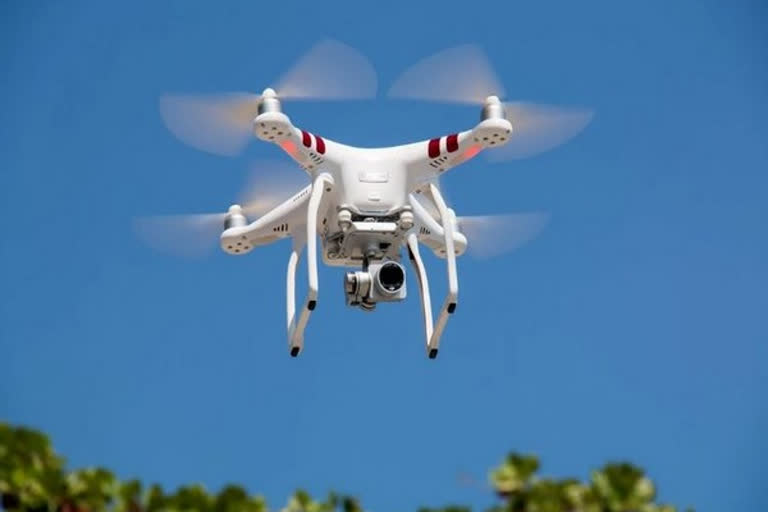New Delhi: The government has undertaken a series of reform measures to make India a global drone hub by 2030, Minister of State for Civil Aviation VK Singh told the Rajya Sabha on Monday. Giving a written reply to a query raised by Bharatiya Janata Party (BJP) MP Narhari Amin, the Minister further said some of the reform measures taken up by the government in this direction include the step to notify Liberalised Drone Rules, 2021 on August 25, 2021.
Drone Airspace Map was published on September 24 last year, opening up nearly 90 percent of Indian airspace as a green zone for drones flying up to 400 feet, said Singh. "Production-Linked Incentive (PLI) scheme for drones was also notified on September 30 last year as well as UAS Traffic Management (UTM) Policy Framework was published on October 24 last year," said the Minister.
A monetary grant program for the purchase of agricultural drones was announced by the Union Agriculture Ministry on January 22 this year, and all application forms under Drone Rules, 2021, were also made online on the Digital Sky Platform on January 26.
Singh said that the drone certification scheme was notified on January 26 this year and the mission "Drone Shakti" was also announced for supporting drone startups and promoting Drone-as-a-Service (DrAAS) as part of the Union Budget on February 1.
Besides, the drone import policy was notified on February 9, banning the import of foreign drones and freeing up the import of drone components. He further mentioned that Drone (Amendment) Rules, 2022 were notified on February 11, abolishing the requirement of a drone pilot license. Now a remote pilot certificate is issued by a Directorate General of Civil Aviation (DGCA) authorized Remote Pilot Training Organisations (RPTO) which is adequate for the remote pilot to operate drones.
Also read:Drone industry to shoot up from Rs 60 crore to 900 crore by 2024-25 : Govt
Giving details of the Drones Rules, 2021 which was notified on August 25 last year, the Minister said it provides the necessary regulatory framework for the civilian or commercial use of drones. These rules cover various aspects like type certification, registration, and operation of drones, airspace restrictions, research, development, and testing of drones, training and licensing, offenses and penalties, said Singh.
Given salient features of the Drones Rules, 2021, the Minister said every drone, except for those meant for research, development, and testing purposes, is required to be registered and should have a Unique Identification Number (UIN).
"An airspace map of the country segregating the entire airspace into red, yellow, and green zones is available on the digital sky platform. The operation of drones in red and yellow zones is subject to the approval of the Central Government and the concerned Air Traffic Control (ATC) authority respectively. No approval is required for the operation of drones in green zones," the Ministry said.
He said drones are required to have the necessary type certification issued by the DGCA, and that no type certification is however required in the case of nano drones (up to 250 gram all-up weight) and model drones made for research and recreation purposes. The Minister said the owner and operators of drones are required to furnish the necessary personal details including their Indian passport number for issuance of any registration or license.
"Authorisation of RPTO will be done by DGCA within specified time limits," said Singh. As of July 20, there were 27 RPTOs authorized by DGCA. Of these, three RPTOs are located in Gujarat-- Blue Ray Aviation Pvt. Ltd., Kaushalya- The Skill University, and Sanskardham Drone Academy. (ANI)



